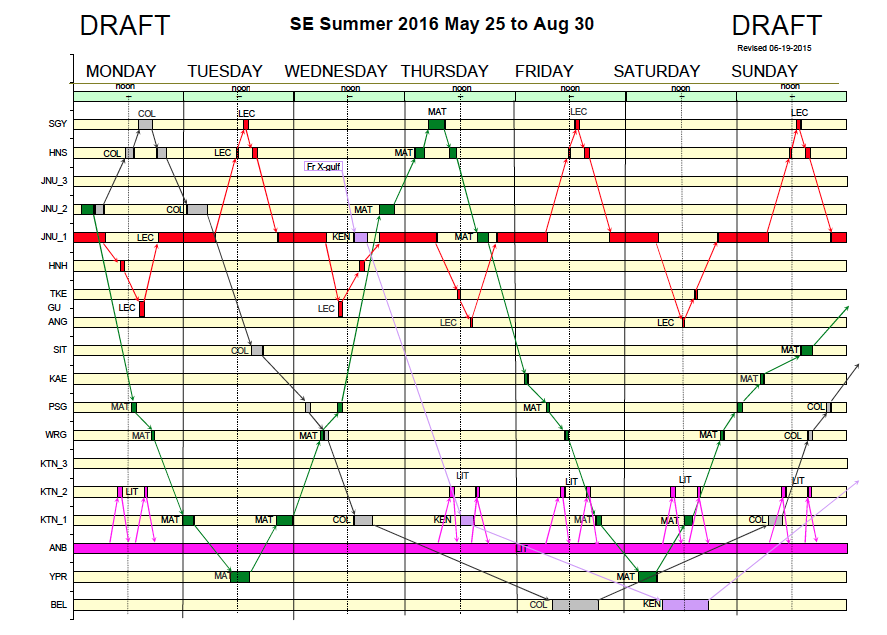
Under the proposed 2016 summer ferry schedule, Sitka would receive one northbound and one southbound ferry a week. By comparison, this summer saw an average of four northbound and four southbound ferries a week in Sitka.
Beyond wrapping up the municipal election, the Assembly’s meeting on Tuesday (10-13-15) night was light on local business. There was however, plenty to discuss about the state – from reduced ferry service to funding prospects.
In his report, City Administrator Mark Gorman shared his concerns about the state’s proposed ferry schedule for next summer. The proposed 2016 summer ferry schedule (click here to view) would reduce service to one northbound ferry and one southbound ferry a week. By comparison, this summer saw an average of four northbound and four southbound ferries a week in Sitka. Gorman said, “We’re all alert to this issue that it would have a very serious impact on Sitka this summer as it goes into play.”
Gorman added that Senator Peter Micciche, Chairman of the Senate Transportation Committee, will host a listening session at Sitka’s Library Information Office on Friday, October 23 from 12 p.m. to 2 p.m. to gather input from the public.
The city continues to calculate the disaster response cost of the August 18th landslides. City administrative officer Jay Sweeney said that barring the cost of debris removal and the August 15th Jarvis Street oil spill (now $92,675), Sitka’s disaster bill is $479,691 dollars – all of which is eligible for reimbursement by the state through an emergency proclamation by Governor Bill Walker.
But Sweeney cautioned that the total cost, all clean-up included, is a ballooning number. Sweeney said, “We fully expect the costs to exceed the 1 million dollars which has been set aside by the Governor and his proclamation and could easily be climbing – when the final accounting is accomplished – towards the two million dollar threshold.”
Sweeney added that Sitka’s biggest costs are still ahead, the vast majority of which is devoted to clean-up on Kramer Avenue.
Public Works director Michael Harmon also addressed the assembly. He said that a team from the state Division of Homeland Security is in town this week, performing an audit before bidding on that project can begin.
Harmon said,”[The state team] is in a hotel cranking through the paperwork. So Thursday (10-15-15) and Friday (10-16-15) we’ll get a sense of if we’re on the right track or not. I’m optimistic we are. They should give us the green light to go on our various projects and get those out to bid next week.”
Those projects include clearing Sawmill Creek Road road, Green Lake road, and Blue Lake road, the road to the old powerhouse, as well as drainage projects throughout town.
The city is also thinking about how to strategically approach the state for funding this year. That included whittling down their list of legislative priorities from a several page packet (click here to see FY16 CBS Legislative Priorities) to a single page (click here to view the early draft of the FY17 CBS Legislative Priorities).
Planning and Community Development Director Maeghan Bosak prepared the document, in consultation with the city’s lobbyist Larry Markley, and presented it to the Assembly. Gorman shared his reasoning for the change, saying, “We’re not going to have money. We’re going to probably be playing defensive, and so we agreed that one page, two side document would be the best use of our resources. We went through last year’s legislative priorities and went through those things we felt should be protected.”
Those things include asking the state for 10 million to replace and upgrade harbors, matching grants to replace water and sewer infrastructure, and changing legal language so that municipalities can explore local tax options. Assembly member Matthew Hunter was particularly interested in state tax laws regarding fuel and alcohol. The Assembly has until January to finalize this document.































